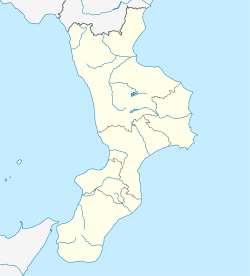History
The village once called Felum later became Terra Sancti Felicis, in honor of San Felice, to whom the population was devoted to the parish church of that time. The denomination San Fili took place later and in the 15th century, the town became part of the county of Rende belonging to the Adorno Doges of Genoa from 1445 to 1529. From 1532 Rende (and therefore San Fili) was raised to the marquisate and included to Ferrente de Alarcone.
San Fili has a fraction and two districts of certain importance: the Bucita fraction and the Frassino and Cozzi district. They made it illustrious San Fili: Vincenzo Miceli (1858-1928) a professor of Constitutional Law and then of Philosophy of Law in the University of Pisa, Palermo, and Perugia, and again Alfonso Miceli, his brother (1855-1940) president of the Court of Appeal of Naples, both natives of San Fili and belonging to the homonymous baronial family of the Miceli of Serradileo. In more recent times by Baron Marcello Miceli (1918-1992) Gentleman of His Holiness Paul VI, John Paul I, and John Paul II, and Knight of Grace and Devotion of the Sovereign Order of Malta.
Several Sanfilesi have emigrated to Canada and the United States, and a significant number also to South America (Argentina and Brazil above all), as well as many emigrants to European countries such as Germany and Switzerland. Today the descendants of Sanfilesi emigrants are a large number; an example is a Canadian community which appears to have reached 6,000 units.
Culture
Traditions
The village of San Fili is known as the "village of magare", creatures identified in most of Southern Italy as witches. In reality they are not sorcerers: in San Fili the "magare" were those women who today we would call naturopaths or herbalists. With the difference that in addition to the knowledge of herbs and natural remedies, they also have popular wisdom, a strong religiosity and a suggestive charm.
Events
In August, a cultural and food and wine event called "Notti delle magare" is held.
Kitchen
Pasta e patate ara tijeddra, [4] majatica, [5] cuddruriaddri e vecchiareddre, [6] turdiddri, [7] chjina, [8] pallone di fichi, [9] crocette di fichi [10]
This page is based on this
Wikipedia article Text is available under the
CC BY-SA 4.0 license; additional terms may apply.
Images, videos and audio are available under their respective licenses.















